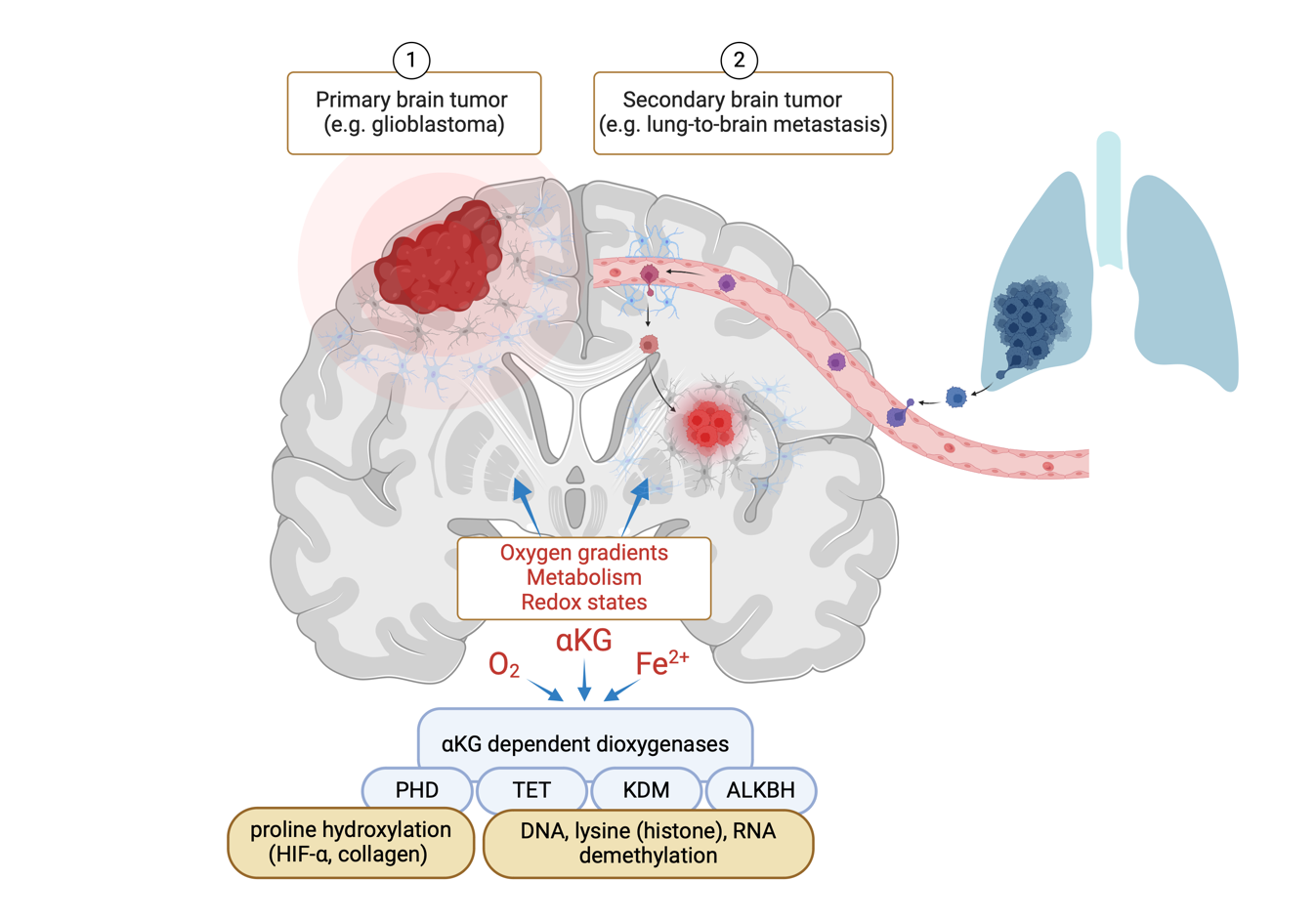Key Research Interests
- Hypoxia-Induced Signaling Pathways: We investigate how oxygen gradients within the tumor microenvironment activate hypoxia-inducible factors (HIFs), through Prolyl Hydroxylase Domain-containing proteins (PHDs) leading to alterations in gene expression that support angiogenesis, metabolic adaptation, and survival under low oxygen conditions.
- Metabolic Reprogramming: Our studies focus on how tumor cells modify their metabolic pathways in response to environmental cues, facilitating sustained proliferation and survival. We explore the role of metabolites like α-ketoglutarate (αKG) in regulating αKG-dependent dioxygenases, which are crucial for epigenetic modifications and stress factor sensing such as hypoxia and iron-metabolism-related oxidative stress.
- Epigenetic Modifications: We examine how metabolic changes influence the activity of epigenetic regulators, leading to modifications in DNA methylation and histone modification patterns that drive tumorigenesis and impact therapeutic outcomes.
- Tumor Microenvironment Interactions: Our research extends to understanding how tumor cells interact with their surrounding microenvironment, including stromal cells and the extracellular matrix, to facilitate invasion, metastasis, and immune evasion. By dissecting these interactions, we aim to uncover therapeutic vulnerabilities

Research topics in the focus area Experimental Neuro-Oncology